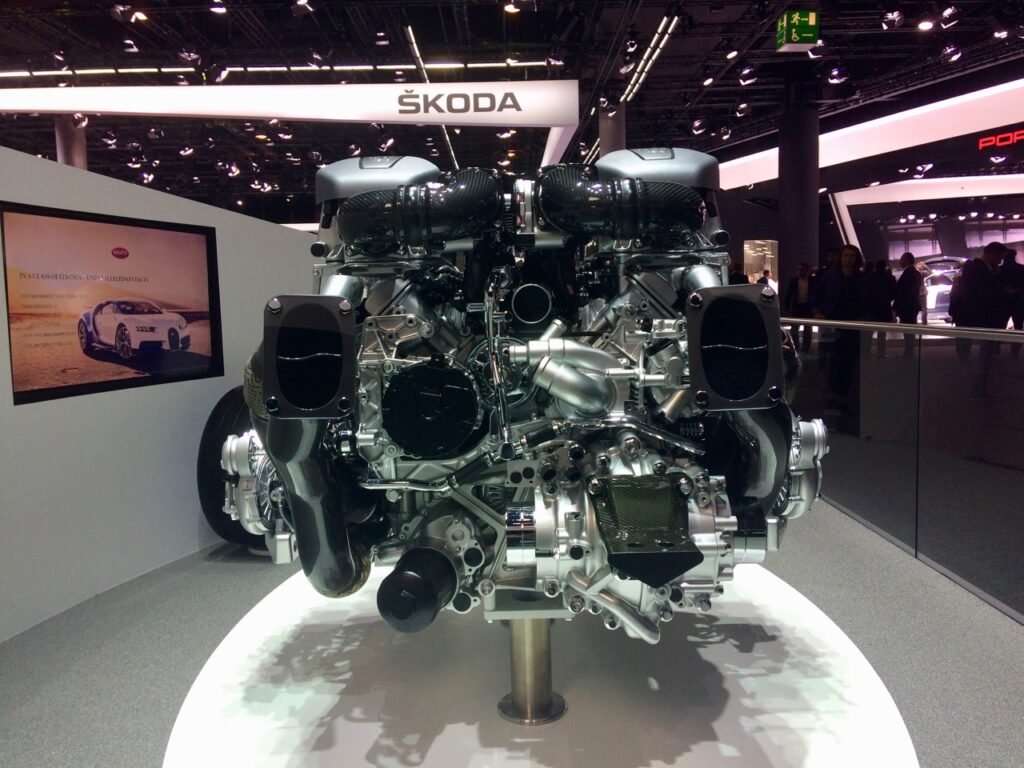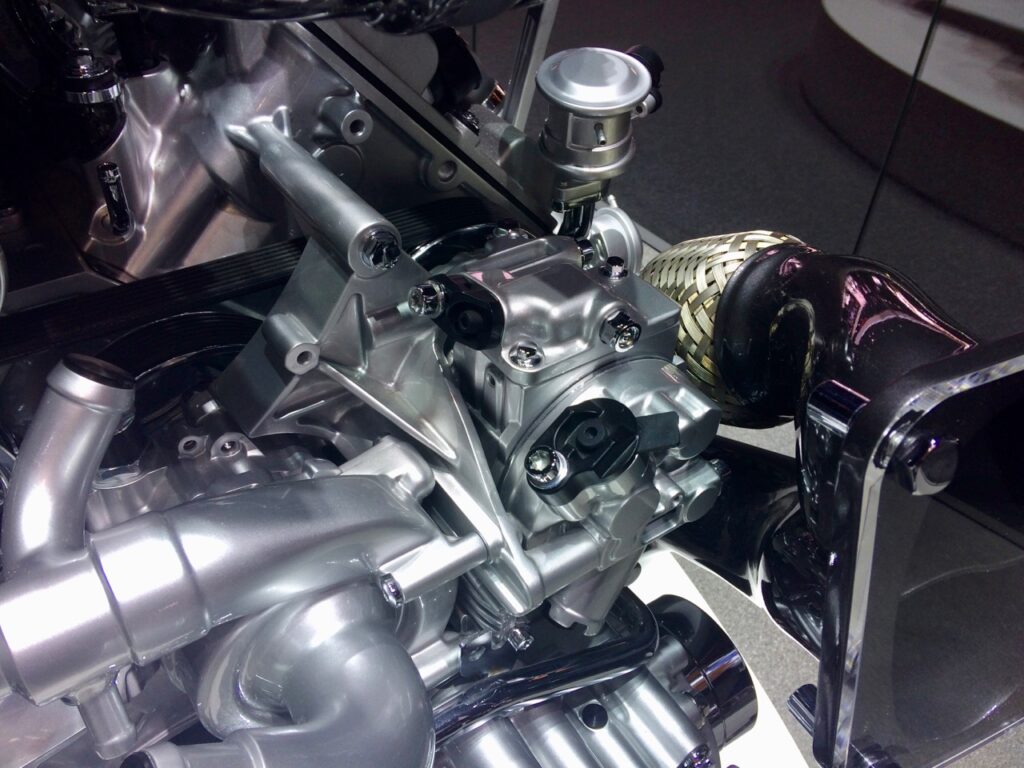BUGATTI ‘INVESTIGATING R744
- PostedPublished 4 November 2017
THE word ‘unobtainable’ does not only apply to the multi-million dollar Bugatti Chiron hypercar itself, but also a CO2 (R744) air-conditioning compressor small enough to fit in the cramped engine bay of the world’s fastest production car.
For now, the rarefied air of a Chiron cabin will remain chilled by R1234yf, or R134a for really hot climates such as the Middle East. And Bugatti sells more cars in the Middle East than you can sheikh a stick at.
SightGlass News bumped into Bugatti HVAC and body engineer Martin Grabowski at the Frankfurt motor show, who confirmed the French company was working on an R744 solution.

“We are using CO2 in the future,” he said.
“It depends a little on the investigation process, which takes place at the moment, but at the moment there is no compressor available that fits into our car.”
Inviting us through a sealed-off area of the Bugatti show stand usually reserved for the brand’s plutocratic patrons and to a technology showcase where the Chiron’s 1103kW 8.0-litre turbocharged W16 engine was displayed on a stand, Mr Grabowski showed us the compressor’s location (pictured below).
“As you can see it is extremely packaged,” he said.

“The problem is the area that is available for us. The [R744] compressor that is at the moment available does not fit in this car.”
Asked why Bugatti was pursuing an R744 solution, Mr Grabowski’s broken English referred to the lack of “poisoning” using this refrigerant.
“The only reason for CO2 is you get no, er, poisoning,” he said, confirming that Bugatti uses R1234yf, which shows there are no exceptions for even incredibly rare cars such as the Chiron under the European MAC Directive that banned R134a from all new vehicles at the start of this year.
“From the functional side we are fine with the actual [R1234yf] refrigerant,” said Mr Grabowski.

When asked about R744 performance in hot climates, Mr Grabowski confirmed he was sticking with R134a where permitted.
“For the Middle East we are using already R134a because we have more performance. At the moment CO2 has less performance,” he added.
For a small package, lightweight parts, this [R134a] refrigerant is the preferred solution because you get more performance, less weight.”
- CategoriesIn SightGlass
- TagsSightGlass News Issue 11

